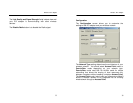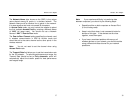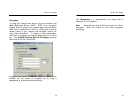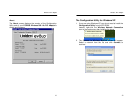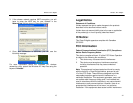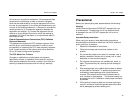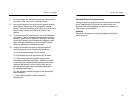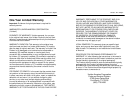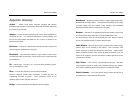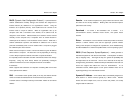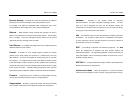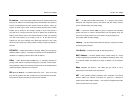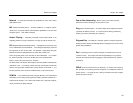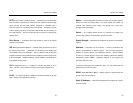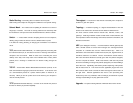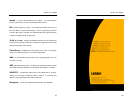
Wireless PCI Adapter
63
Static Routing – Forwarding data in a network via a fixed path.
Static routing cannot adjust to changing line conditions as can dynamic routing.
Subnet Mask – The method used for splitting IP networks into a series of
subgroups, or subnets. The mask is a binary pattern that is matched up with
the IP address to form part of the host ID address field into a field for subnets.
Switch – 1. A data switch connects computing devices to host computers,
allowing a large number of devices to share a limited number of ports.
2. A device for making, breaking, or changing the connections in an electrical
circuit.
TCP (Transmission Control Protocol) – A method (protocol) used along with
the Internet Protocol (IP) to send data in the form of message units between
computers over the Internet. While IP takes care of handling the actual
delivery of the data, TCP keeps track of the individual units of data (called
packets) that a message is divided into for efficient routing through the
Internet.
TCP/IP – Transmission Control Protocol/Internet Protocol (TCP/IP) is the
basic communication language or protocol of the Internet. It can also be used
as a communication protocol in a private network (either an intranet or an
extranet). When you are set up with access to the Internet, your computer is
uses the TCP/IP protocol.
TFTP (Trivial File Transfer Protocol) – A version of the TCP/IP FTP protocol
that has no directory or password capability.
Wireless PCI Adapter
64
Throughput – The amount of data moved successfully from one place to
another in a given time period.
Topology – A network’s topology is a logical characterization of how the
devices on the network are connected and the distances between them.
The most common network devices include hubs, switches, routers, and
gateways. Most large networks contain several levels of interconnection, the
most important of which include edge connections, backbone connections, and
wide-area connections.
UDP (User Datagram Protocol) – A communications method (protocol) that
offers a limited amount of service when messages are exchanged between
computers in a network that uses the Internet Protocol (IP). UDP is an
alternative to the Transmission Control Protocol (TCP) and, together with IP, is
sometimes referred to as UDP/IP. Like the Transmission Control Protocol,
UDP uses the Internet Protocol to actually get a data unit (called a datagram)
from one computer to another. Unlike TCP, however, UDP does not provide
the service of dividing a message into packets (datagrams) and reassembling it
at the other end. Specifically, UDP doesn’t provide sequencing of the packets
that the data arrives in. This means that the application program that uses
UDP must be able to make sure that the entire message has arrived and is in
the right order. Network applications that want to save processing time
because they have very small data units to exchange (and therefore very little
message reassembling to do) may prefer UDP to TCP.
Upgrade – To replace existing software of firmware with a newer version.



